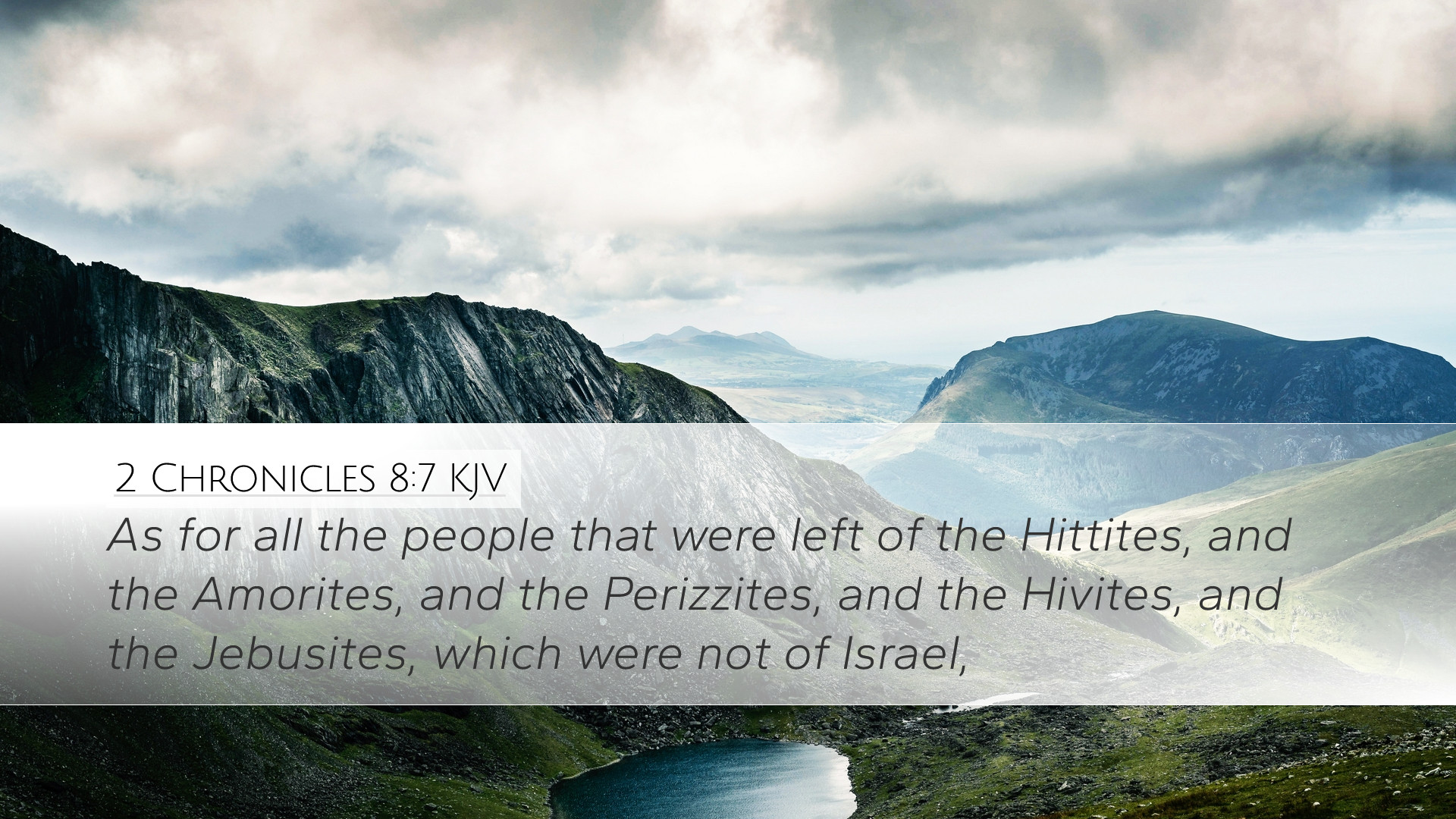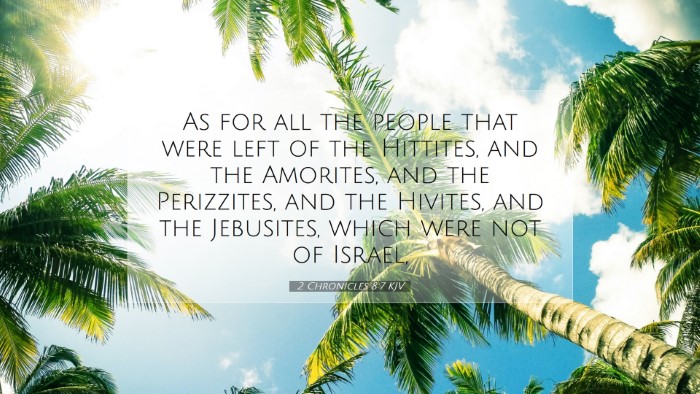Commentary on 2 Chronicles 8:7
Verse: "As for the rest of the people that were left of the Hittites, the Amorites, the Perizzites, the Hivites, and the Jebusites, which were not of Israel,
Introduction
The verse in 2 Chronicles 8:7 provides a significant glimpse into the socio-political landscape of ancient Israel during Solomon's reign. It captures a moment of consolidation and transition, as well as the theological implications surrounding the nations mentioned.
Historical Context
This passage falls within the larger narrative of Solomon's reign, particularly following the construction of the temple and the establishment of Israel as a major power in the region. The context highlights the nations that were left in the land and their interactions with Israel.
Matthew Henry's Insights
Matthew Henry emphasizes the notion of divine favor in Israel's conquests. He notes that as God's chosen people, Israel's dominion over the land was a fulfillment of the promises made to the patriarchs. The presence of these Canaanite tribes, therefore, serves as a testament to God's grace, preserving a remnant of these nations who were to serve Israel.
Subjugation and Service
Henry points out that the remaining tribes did not share in the blessings of the covenant but rather remained subjugated. They served under Solomon's rule, which reveals the extent of Israel's authority and the gradual fulfillment of God's promise to Abraham concerning the land.
Albert Barnes' Observations
Albert Barnes offers a more detailed historical analysis, explaining that these nations represent the remnants of those who opposed Israel's occupation of the Promised Land. He notes that their continued presence served a dual purpose; both to remind Israel of God's deliverance and to demonstrate the ongoing need for faithfulness to God's covenant.
Theological Implications
Barnes argues that the inclusion of these nations in the narrative highlights the theme of judgment and mercy. While they faced subjugation as a consequence of their idolatry, they also experienced God's mercy by being allowed to remain in the land and serve Israel.
Adam Clarke's Commentary
Adam Clarke provides a meticulous breakdown of the tribes mentioned, delving into their origins and significance. He underlines the importance of understanding these groups, not just as historical entities, but as representations of spiritual themes. Clarke suggests that the presence of the Hittites, Amorites, Perizzites, Hivites, and Jebusites in Israel's narrative signifies the ongoing struggle between faith and idolatry.
Lessons for Believers
According to Clarke, this passage prompts reflection on the nature of God's chosen people. He posits that just as these tribes were physically present in the land but spiritually void, so too can contemporary believers reside in environments that challenge their faith.
The Role of Scripture in the Life of a Believer
This verse serves as a reminder of the importance of surrounding oneself with influences that affirm faith rather than compromise it. Just as Israel had to navigate their relationships with the remaining nations, so too must believers navigate their cultural contexts today.
Conclusion
2 Chronicles 8:7 offers rich insights for pastors, students, theologians, and scholars. It invites an exploration of God's providence, the significance of covenant loyalty, and the realities of living amidst a pluralistic culture. As Solomon's reign exemplifies the tension between divine promise and human experience, this passage reminds us that God remains sovereign, fulfilling His plans and purposes in and through His people.


